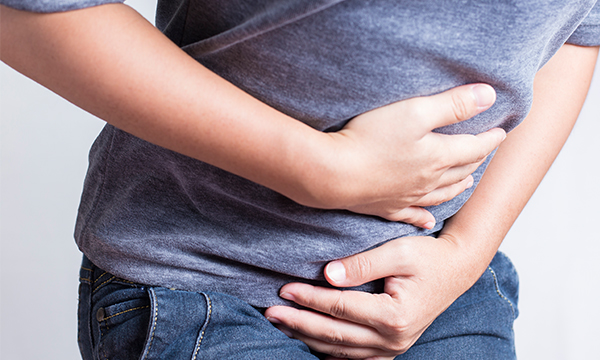
Last week we held the second discussion in our Coping Webinar Series, focused on the most common side effects of lung cancer treatment, digestive problems, including nausea, vomiting, constipation and diarrhea.
We sat down with Director of Palliative Care at Carolinas Healthcare System, Niki Koesel ANP, ACHPN, FPCN and oncology and palliative care doctor at UC San Diego Moores Cancer Center, Eric Roeland MD, FAAHPM to determine what causes common digestive issues, how to manage them and more importantly, how to prevent them.
Key Takeaways
- Prevention is key! There are medications that can help prevent you from feeling ill.
- Any changes or discomfort should be reported to your treatment team right away, whether experienced at home or in the infusion center. Your team cannot help you unless they know what is going on.
- You are not alone! 70-80% of lung cancer patients experience some type of digestive issue when going through chemotherapy.
Nausea & Vomiting
Nausea and vomiting are the #1 side effects of patients undergoing chemotherapy
Why is it important to address?
- So you can feel better! Your treatment team has the tools to help.
- It can interfere with the processing of chemotherapy
- It can cause unplanned office/hospital visits
Tips:
- Drink plenty of fluids
- Regarding food, “If it looks good and you can keep it down, go for it”
- Wear clothing that is loose fitting around your waist area
- Be aware of your triggers (e.g. odors)
- Try relaxation techniques
Constipation
What does it mean? Any changes in how often you go to the bathroom or changes in the comfort of your stool.
Why does it happen?
- Some treatments or medications can cause constipation (e.g. anti-nausea meds)
- Electrolyte imbalances (e.g. dehydration, elevated calcium)
- Decreased mobility
Talk to your doctor about the right medications for your situation. Additionally, here are some non-medication treatment tips:
- Get regular exercised. Keep moving!
- Dietary modifications (e.g. increased fluid and fiber intake)
- Medication review and rotation if appropriate
Diarrhea
What to do if you have diarrhea:
- Maintain hydration
- Protect perianal area
- Treat infections
- Ask your doctor about “overflow diarrhea” caused by constipation
- Consider dose reduction or delay
Tips:
- The same amount should go in as comes out; drink plenty of clear fluids and avoid caffeine and milk products
- Avoid greasy/fatty foods, raw fruits and vegetables and foods high in fiber
For any questions about lung cancer and treatment side effects, call our HelpLine at 1-800-298-2436.
Lung Cancer Alliance’s Coping Webinar Series is a program to help you manage the side effects and symptoms of lung cancer and its treatment.

Useful blog. The way it was explained how to deal with different situations is super helpful.
THANKS FOR SHARING!
Hi,
Thanks for sharing this information.There are some conferences happening in which medical speciality would be Gastroenterology and here is one of those conferences.the conference details are given below.
Cedars-Sinai International Endoscopy Symposium 2019 is organized by Cedars-Sinai Medical Center and will be held from Jan 24 – 27, 2019 at Cedars Sinai Medical Center Harvey Morse Conference Center South Tower, Los Angeles, California, United States of America.
For more information:
https://www.emedevents.com/c/medical-conferences-2019/cedars-sinai-international-endoscopy-symposium-2019
Thank you,
Hi,
Thanks for sharing this information.There are some Conferences happening in which medical speciality would be Gastrointestinal endoscopy and here is one of those conferences.the conference details are given below.
19th Annual Minimally Invasive Surgery Symposium (MISS) is organized by Global Academy for Medical Education and will be held from Feb 25 – 28, 2019 at Encore Las Vegas, Las Vegas, Nevada, United States of America.
For more information please follow the below link:
https://www.emedevents.com/c/medical-conferences-2019/19th-annual-minimally-invasive-surgery-symposium-miss
Thank you,
Hi,
Thank you for sharing this information.There are some conferences happening in which medical specialty would be Gastroenterology and here is one of those conferences the conference details are given below.
6th Annual Digestive Diseases: New Advances Conference is organized by Global Academy for Medical Education and will be held from Mar 15 – 16, 2019 at Philadelphia, Pennsylvania, USA. The target audience for this medical event is gastroenterologists, hepatologists, primary care physicians, internists, advanced practice nurses, nurses, pharmacists, and physician assistants.
For more information please follow the below link:
https://www.emedevents.com/c/medical-conferences-2019/6th-annual-digestive-diseases-new-advances